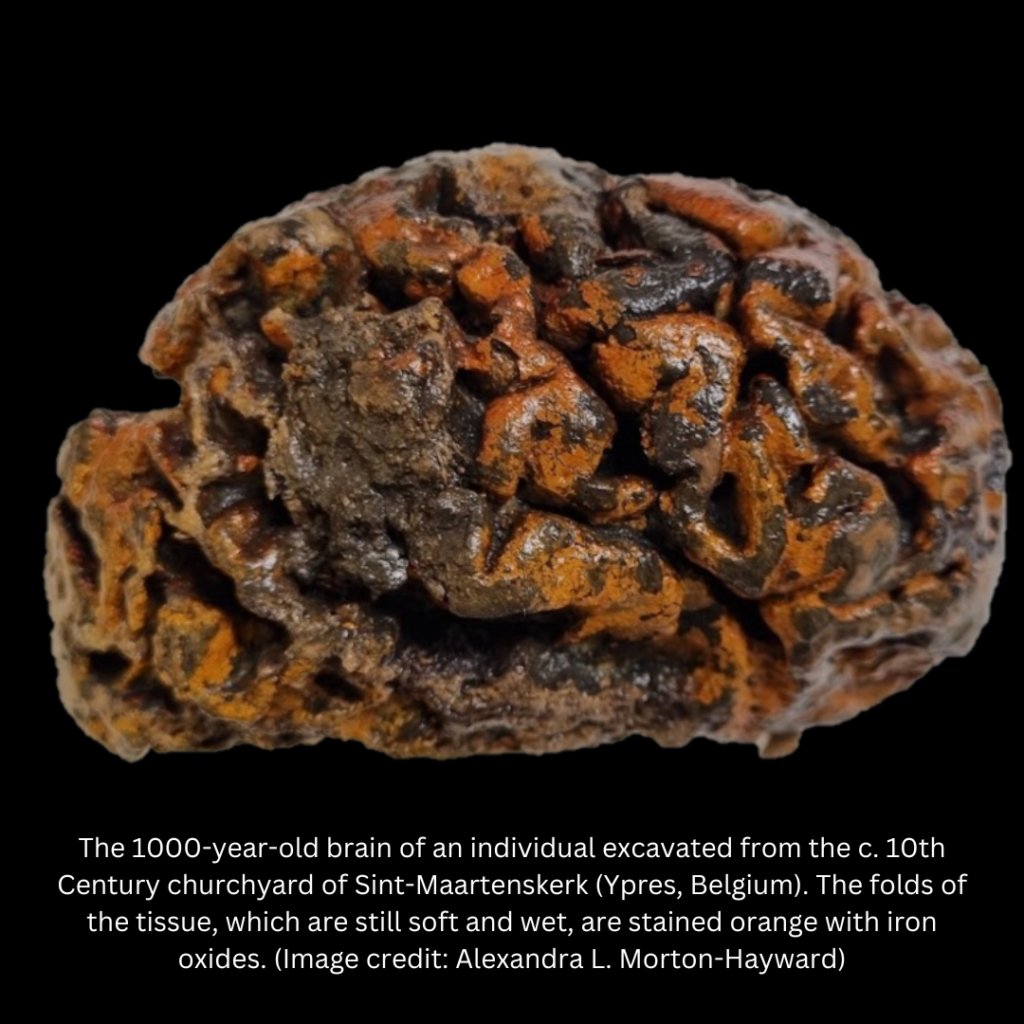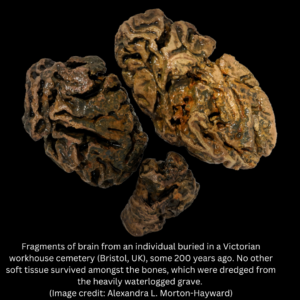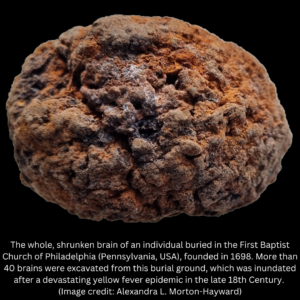St Hugh’s Fellow is co-author of research which uncovers remarkable archive of ancient human brains

A new study conducted by researchers at the University of Oxford, including St Hugh’s Fellow and Tutor in Palaeobiology, Professor Erin Saupe, has challenged previously held views that brain preservation in the archaeological record is extremely rare. The team carried out the largest study to date of the global archaeological literature about preserved human brains to compile an archive that exceeds 20-fold the number of brains previously compiled. The findings were recently published in the Proceedings of the Royal Society B.
Soft tissue preservation in the geological record is relatively rare, and, except where deliberate intervention halts the process of decay (for instance, during embalming or freezing), the survival of entire organs is particularly unusual. The spontaneous preservation of the brain in the absence of any other soft tissues – that is, the brain’s survival amongst otherwise skeletonised remains – has historically been regarded as a ‘one-of-a kind’ phenomenon. This new research reveals, however, that nervous tissues actually persist in much greater abundances than traditionally thought, assisted by conditions that prevent decay.
The study, led by postgraduate researcher Alexandra Morton-Hayward (Department of Earth Sciences, Oxford), brings together the records of more than 4,000 preserved human brains from over two hundred sources, across six continents (excluding Antarctica), and in more than ten languages. Many of these brains were up to 12,000 years old, and found in records dating back to the mid-17th century. These shrunken, discoloured tissues were found preserved in all manner of individuals: from Egyptian and Korean royalty, through British and Danish monks, to Arctic explorers and victims of war.
Scouring the literature and canvassing historians worldwide, this concerted search found a bewildering array of archaeological sites yielding ancient human brains, including the shores of a lakebed in Stone Age Sweden, the depths of an Iranian salt mine around 500 BC, and the summit of Andean volcanoes at the height of the Incan Empire.
Every brain in the database was matched with historic climate data from the same area, to explore trends in when and where they were found. The analyses revealed patterns in the environmental conditions associated with different modes of preservation through time – including dehydration, freezing, saponification (the transformation of fats to ‘grave wax’), and tanning (usually with peat, to form bog bodies).
Professor Saupe said: ”This record of ancient brains highlights the array of environments in which they can be preserved from the high arctic to arid deserts.’
Over 1,300 of the human brains were the only soft tissues preserved, prompting questions as to why the brain may persist when other organs perish. Interestingly, these brains also represent the oldest in the archive, with several dating to the last Ice Age. The mechanism of preservation for these oldest brains remains unknown; however, the research team suggest that molecular crosslinking and metal complexation – proteins and lipids fusing in the presence of elements such as iron or copper – are feasible mechanisms by which nervous tissues might be preserved over long timescales.
You can read the full article on the Oxford University website.


